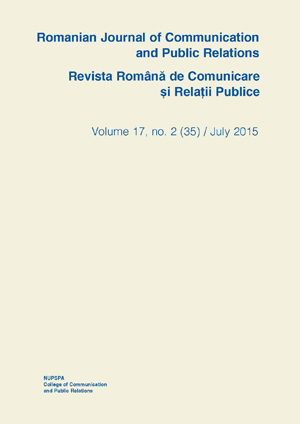
Book review of Cultures of Mediatization by Andreas Hepp
Book review of Cultures of Mediatization by Andreas Hepp, Cambridge, Malden: Polity Press, 2012, 180 pages
More...We kindly inform you that, as long as the subject affiliation of our 300.000+ articles is in progress, you might get unsufficient or no results on your third level or second level search. In this case, please broaden your search criteria.

Book review of Cultures of Mediatization by Andreas Hepp, Cambridge, Malden: Polity Press, 2012, 180 pages
More...
Through this research we aimed to identify the similarities and differences between men and women, and between two groups of age (19–35 years and 36–65 years) in terms of the social representation of the beggar, in Romania. We used four samples of participants, formed depending on gender and age: 26 men aged between 19 and 35 years, 31 women aged between 19 and 35 years, 30 men aged between 36 and 65 years and 31 women aged between 36 and 65 years. We established that, for all the samples, the content of the social representation of the beggar is the same, beeing built-up by nine terms: poor; compassion; lazy; dirty; with disabilities, ill; person who pretends; homeless; exploited (put by others to beg), and gipsy. The central node of the social representation, in all the samples, is the term poor. However, the structure of the social representation differs between the samples.
More...
The purpose of the present study was to explore the relationships between dietary patterns (omnivorous vs. vegetarian), physical health and subjective well-being. There were 66 respondents, of which 37 omnivores, 14 pesco-vegetarians and 15 vegetarians. They completed a protocol with four standardized questionnaires. Participation was voluntary, based on informed consent. Responses given to the first questionnaire revealed a healthy dietary style among pesco-vegetarians and vegetarians. The frequency of self-reported morbidity was low. Thus, less than a quarter of all respondents reported that they had been diagnosed with a somatic chronic disease (e.g., osteoporosis, osteoarthritis, asthma or hypertension). However, almost three quarters of the cases with a chronic medical condition were represented by the omnivore respondents. Compared with them, both vegetarians and pesco-vegetarians obtained a significantly lower mean for body mass index and higher means on the perception of their healthy dietary habits as well as on satisfaction with their own dietary style and physical health. Furthermore, compared with the omnivores, vegetarians reported a higher mean on the satisfaction with their own lives. There were no significant differences in self-esteem and depression. Some limits of the study and directions for a future investigation are discussed. The results suggest that vegetarian diet may have benefits not only in terms of somatic functioning and physical health, but also in subjective well-being.
More...
This paper presents the thoughts, attitudes and actions of the famous Russian writer and a great social critic, Leo Tolstoy. Being a rich aristocrat, he experiences a feeling of unrest due to the injustice happening in the world around him. He cannot withstand his privileged position so through the conflict of his inner thoughts he seeks the justice for common working people. The paper begins with a review of Tolstoy's story "Lucerne", where he planted the seeds of doubt concerning the benefits of the civilization. The second part of the paper presents Tolstoy's struggle between the opposing principles - moral self-improvement and faith in progress. The executions in Paris and the death of his brother Nicholas were two key events that had influenced him to change his attitude toward the superstition concerning progress. The third part of this paper refers to Tolstoy's public struggle against progress through education. While searching for the adequate education for children from rural areas, he preached for the reform of education and eventually achieved the complete denial of progress. The final part of the paper presents Tolstoy's final views on the achievements of civilization and progress. His denial of progress was based on the belief that only a privileged minority benefits from progress and civilization, while the common people had no benefit from them.
More...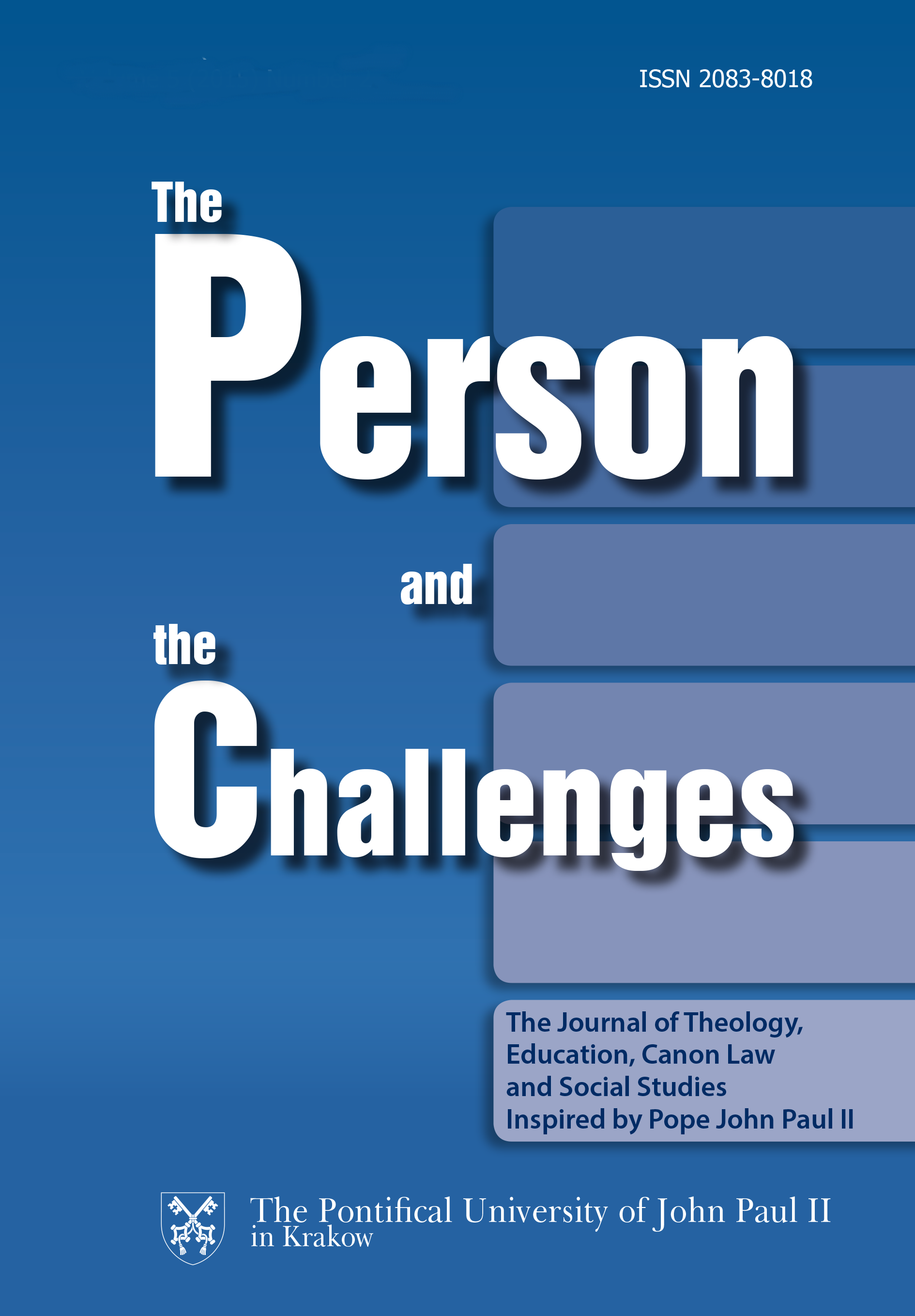
Financial, political, ideological, sociological, cultural and existential transitions in Poland are experienced as a far more complex process than what it seemed in the begin-ning. The challenges Poles are facing in a new, democratic society, in some ways, are more demanding than those in a socialist one. In this article, the author presents sociological data, gathered by the Public Opinion Research Centre in Poland, showing the public opinion about the change in the system since 1989. The evaluation of the social consequences of transformation is not unequivocal. 37% believe that the post-1989 changes brought more benefits than losses to the people. On the negative side, Poles note the increase in indi-vidualism and weakening of interpersonal ties. Negative public sentiment grew in Poland especially after 2009, five years after Polish accession to the European Union when the average salary of Poles accounted for about 25–30% of earnings in Western Europe, many people could not find employment in Poland and so they had to migrate to Western Europe.
More...
This paper deals with the participation of people with disabilities in the society. Participation is one of the central concepts in international documents that were created under the influence of the social model of disability, which has shifted the focus of responsibility from one’s impairment to his/her environment. Review of experiences of adults with disabilities regarding the obstacles they face in relation to employment, intimate relationships, marriage and parenthood shows that the intensity and quality of participation of people with disabilities depend on a complex interaction between a person’s characteristics and specificities and his/her immediate and wider environment.
More...
In this paper we provide a draft for the organization of counseling for the blind and weak sighted children and their parents. By studying this problem over a long period of time and by observing the accompanying shortcomings that the blind and weak sighted children encounter, as well as their parents, and guided by the Declaration of the Rights of the Child, we came up with the idea for this paper. In the paper we focused our attention on the organizational problems and their possible solutions as well as the goals of the institution in question.
More...
The aim of the proposed study is to realize a comparative analysis between social services in rural and urban areas regarding the implementation of professional supervision.The objectives of the study are to analyze the implementation of supervision in social services that has been realized from the perspective of the following aspects: ways to achieve the supervision; who is the supervisor; supervising functions; frequency of supervisory meetings; the supervisory methods used; the extent to which supervision is found in the regulations governing the organization and functioning of the institutions, in job descriptions, activity reports.The research group consisted of 116 social workers, 40 of whom were active in social services in the rural area and 76 in urban services, all of them in the area of Maramureş County. To carry out this study, an analysis questionnaire was used with a total of 16 questions on the objectives. The satisfactory analysis was performed using the SPSS-variant 11 program, with cross-sectional analyzes (to obtain the Chi-Square coefficient).The results give us an overview of the various aspects of supervision in social work practice. Proposals accompanying these analyzes may also make possible future action paths on the line of supervision to improve the quality of social services provided
More...
Aim of the study. Swinging is a relatively new phenomenon in Poland. Due to this reason, a number of ethical and psychological questions have grown around the issue. The aim of the following research is to investigate the effects of jealousy on the people involved in swinging. Material and methods. The 49 people involved in exchanging partners have been examined. Only 28 of them met the proper criteria of swinging. The research used the author’s own questionnaire concerning jealousy. Results. Most of the participants involved in swinging, regardless of their gender, feel jealous of their partner (60.7%) and know that he/she also feels the same (75.0%). Furthermore, a significant number of participants declare that knowing that their partner is jealous gives them pleasure (53.6%). Conclusions. The group of Polish swingers is no different from the group of swingers described in the studies carried out abroad in terms of disclosure and understanding of jealousy.
More...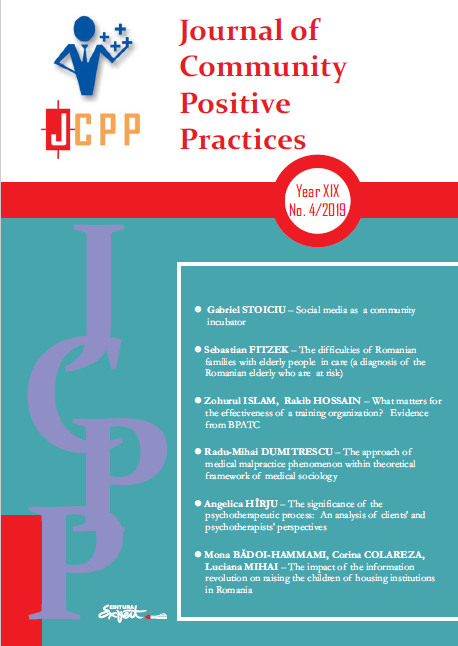
Studying the perceptions of the therapists and the clients on the meaning of psychotherapy is important because through them one can grasp some of the realities of therapy that cannot be studied through conventional quantitative research. Reintroducing a phenomenological perspective may further ease our understanding of psychotherapy in general. In this study, the action of giving significance to one’s experience is used to describe the perceptions of the psychotherapists (N=137) and the clients (N=103). The analysis used in the study, a version of grounded theory research, revealed that when it comes to the significance given to therapy, psychotherapists and clients tend to have similar opinions. The categories found in the clients verbatim were self-knowledge, personal development, answer, help, healing and others and in therapists’ responses were: self-knowledge, healing, solution, personal development, change and others. The different themes were help for the clients and change for therapists. The difference in the analysed categories is a conceptual one, psychotherapists tending to be more idealistic in their meaning giving process than clients.
More...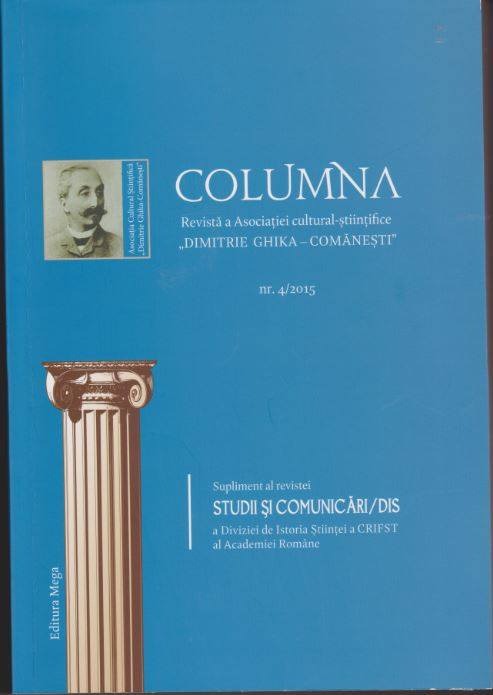
This article tries to analyze the alienation of modern human being. Modernity means positivity: it is described as something that must be fought relentlessly and worth the sacrifices to achieve it. This is unusual, because the very nature of modernity is generally known as„unambiguous ambiguous” with positive and negative traits, emancipatory and exploiting inseparably intertwined. It is said that the positive features have enhanced progress and better standards of life. Examples include widespread literacy, urbanization, industrialization. By contrast,negative traits were due to opposing phenomena: alienation, mining etc. In almost natural alienation this modern duality is perceived as having its origins in the very concept of rationalism of the Enlightenment project broadcast (which, in turn, as everyone knows, is supposed to be the fountain of modernity). In contrast, post‑communist societies seem to disregard this nature contradictory and insists to cultivate their own modernity unambiguous „desirable”. The alienation of modern being is realized on three levels: removal of society, of religion and of past values.
More...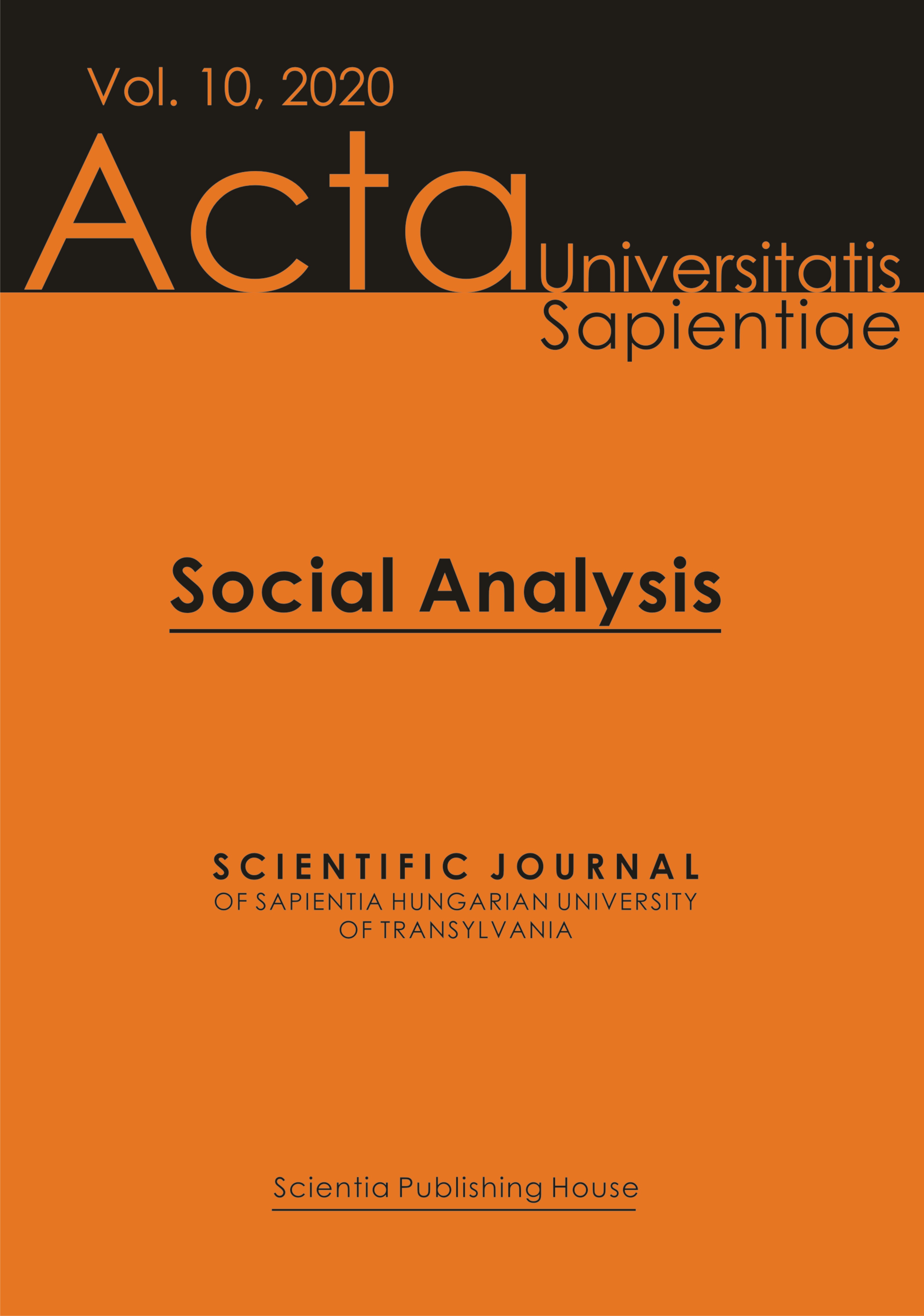
This study is focused on the relationship between the youth and other social groups based on the data of the GeneZYs 2019 study. The study asked 15–29-year-olds from four countries regarding how appealing or unappealing they feel 24 different social groups. Research results show that several social groups, e.g., homosexuals, migrants/refugees, skinheads, drug users, are especially perceived as relatively repulsive/distasteful by the youth of the studied countries. Starting from theoretical and empirical antecedents, the author presumed that the low level of openness among the youth could be explained by several factors such as socio-demographic background, religiosity, value orientation, and sources of information. Based on empirical results, the author takes an analytical approach on the population under study. The goal of the study is to exceed the level of a partial analysis and to explore a typology while redefining the relationship between the motivation factors of prejudices. The hypotheses were partially confirmed. Compared to the author’s expectations, the typology of young people based on their attitudes towards otherness seems to be harder to explain. Three groups were identified: a smaller one which feels others being appealing, a larger one with a neutral attitude towards others and which sympathizes less with Hungarian groups than the average, and a medium-sized third group which dislikes otherness. From the characterization of the groups, one can discover that among those who dislike otherness, the overrepresented categories are: men, young people from rural areas, those who finished secondary education level, those economically active, young people from Ukraine, atheists, those who did not study abroad, people who suffered from discrimination experiences, young people with regional Hungarian and/or Hungarian identity, people who are not satisfied with the national economy and interethnic relations, and those who see the future in a pessimistic way.
More...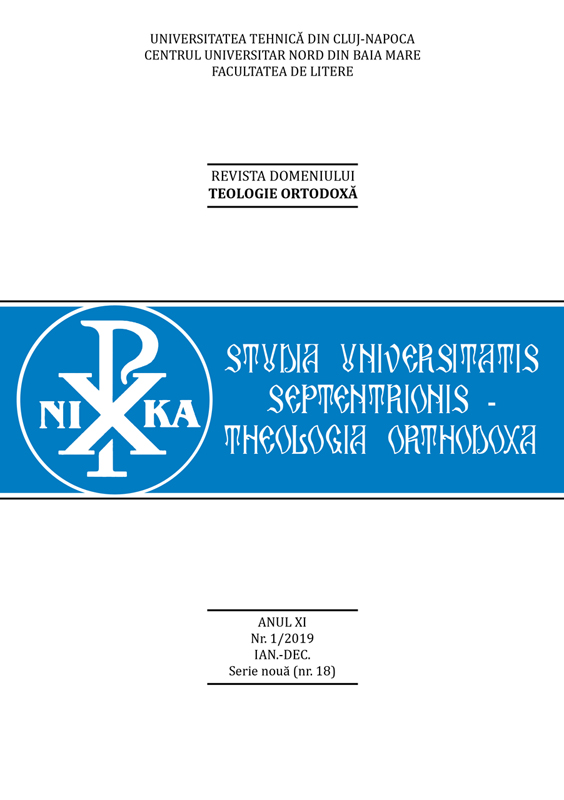
Social assistance is a reality as old as human history, for at least two reasons: first of all, all collectives have always had individuals who, for genetic, natural or social reasons, were unable to to satisfy their needs by their own means, secondly, in no type of civilization was the total lack of care for the members in difficulty. Thus, poverty, disabilities, the existence of orphans and abandoned children, the elderly and without family support are old problems since the world, which mankind has tried, throughout history to solve by calling on various internal structures and mechanisms of adjustment. , some spontaneous and others institutionalized. Disability is the diminution of the person's ability to adapt to the demands of the physical and social environment as a result of his deficiency and the incapacity resulting from it. The handicap represents the reduction of human functions at different levels compared to the normal functions of a normal man. The one with a disability does not have the physical possibility to naturally carry out the ordinary activities that are required to be performed in a certain period of time. People with disabilities encounter cultural, physical or social barriers that impede their access to different systems of society or limit opportunities to take part in community life on an equal footing with others. They are protected in institutions such as special hospitals, asylums, rehabilitation centers for invalids and other specialized institutions, without granting the right and effort to reintegrate into society.
More...
Discrimination in the postmodern society can have many different causes and can affect people of different racial, ethnic, national or social backgrounds, such as communities of Asian or African descent, Roma people, indigenous peoples, Aboriginal people and people of different castes. Discrimination can also refer to people of different cultural, linguistic or religious backgrounds, people with disabilities or the elderly. Moreover, people can be discriminated because of their sexual orientation or preferences. Gender-based discrimination is also common, despite progress in many countries. Women are also particularly prone to violent and abusive practices, and therefore often suffer from a double discrimination, both because of their race or origin and because of their gender, which is why feminist literature in recent years points to new acts or forms of discrimination against women. A major problem in the postmodern world is the discrimination that many people are subjected to, especially women and children, because they live in extreme poverty. These circumstances may force them to migrate and further contribute to a conceptual or social contamination, that may aggravate discriminatory tendencies in the societies where they migrate. The article aims to theoretically analyse the degree of functionality that the principle of non-discrimination based on gender, race, religion and sexual orientation has in the contemporary, postmodern, individualistic society.
More...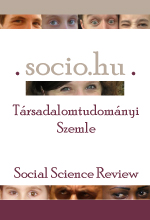
The study, based on the results of an ethnographic research, examines the internal discourse of an alternative grammar school (the „Diákház”) in Budapest. The students of the Diákház are early school leavers who mostly feel some rejection towards adults, teachers and schools. The teachers of the Diákház are trying to work with these students partly with pedagogical methods different from traditional ones, partly with the shaping of the school discourse. This paper shows the main (subcultural and institutional) themes of the school discourse, and how the themes of the subcultural construction and interpretation of „otherness” (difference, diversity, deviance, marginality, resistance) intertwined with the central concepts of school operation (independence, responsibility, knowledge) help teachers and students to work together. By maintaining the link between the two parallel interpretive frameworks the teachers of the Diákház have developed a unique approach within Hungarian education for successfully working with deviant and dropout students and for dealing with the problems that lead them to drop out.
More...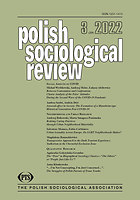
Our conceptual paper argues that the COVID-19 pandemic has created conditions for the constitution of a new historical generation in Mannheimian terms. Current attempts in the sociology of youth to reconcile structure and agency with the concept of generation provide good starting points for interpreting a historical event such as the COVID-19 pandemic. While generations are not to be understood as homogeneous groups, constituting events can be compared to an asteroid that changes the trajectory of each social group. Thus, the concept of asteroid-effect helps us to overcome oversimplifying generational interpretations and to examine the effects of generation-forming events with an eye on structural inequalities. Our study provides an overview of the classical generational theory of Mannheim in light of some contemporary approaches. Based upon existing information, we illustrate how the generation-forming events can be interpreted and how structural inequalities can be considered.
More...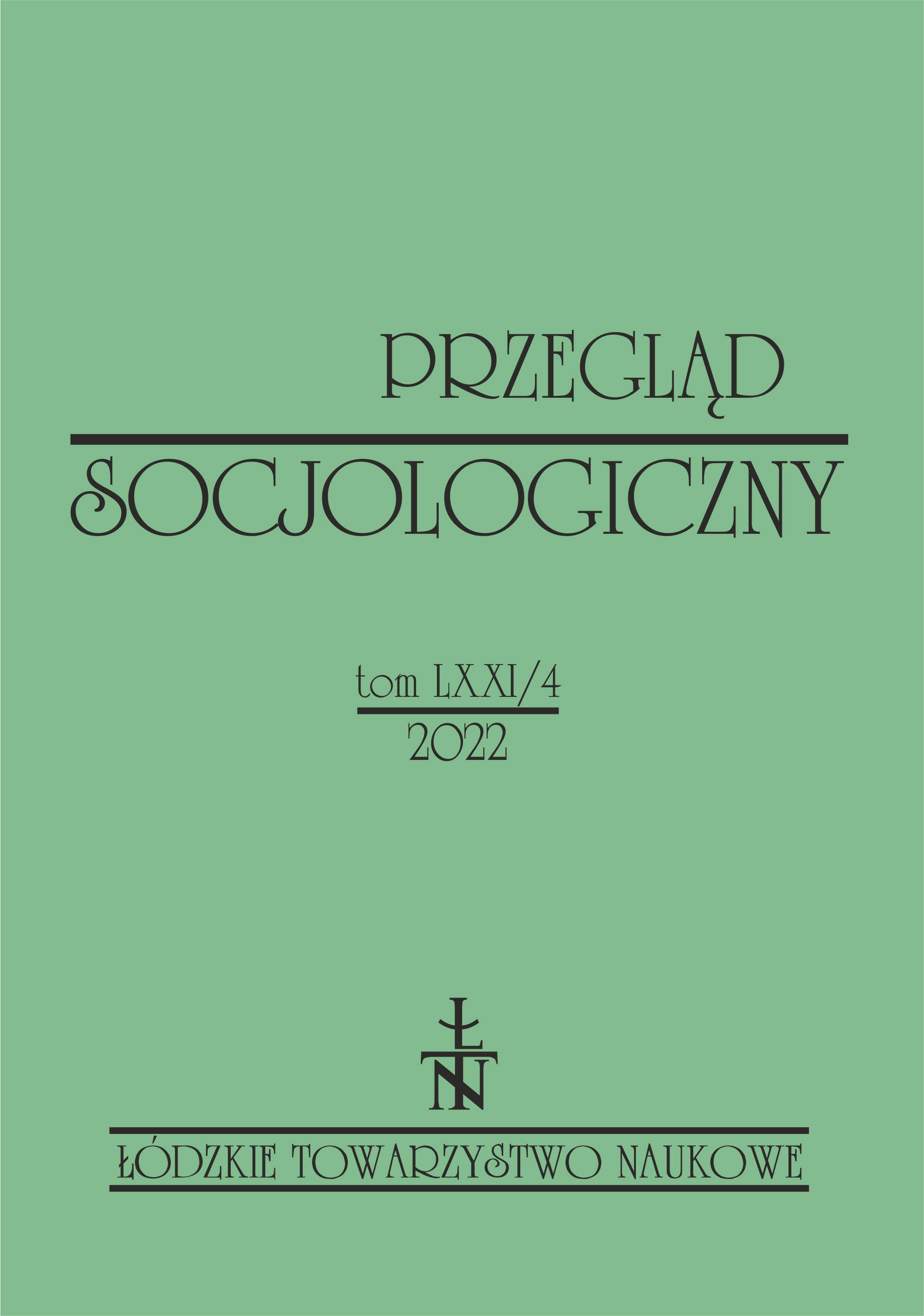
Although mixed origin is experienced as a resource by binational individuals, in some situations it can become a stigma. Through processes of othering, “mixed”, individuals experience a sort of stigmatization. It is a specific manifestation of stigma that develops its importance in connection with discourses and social lines of difference. Mixedness does not per se always lead to a stigma, but can become relevant in the intersection with race, ethnicity, class, gender, language, or religious affiliation and social hierarchies. The social contexts and their orders of belonging thus shape the stigma experiences of “mixed” individuals and, concomitantly, their opportunities. Based on my recent study on “mixed” individuals in Switzerland and Morocco, this article discusses how mixedness can turn into a stigma and how “mixed” individuals manage and resist these stigmatizations. I argue that mixedness can become an experience of stigmatization when processes of othering lead to the painful experience of non-belonging. This experience of discomfort stimulates continual negotiations between social perception and self-perception. In the article four varieties of stigma-management are developed: (1) attempting to unify the different origins, (2) developing an expert attitude, (3) looking for alternative spaces of belonging, (4) normalizing the “mixed” origin. The four types describe what I call subjective balances: the individual way of dealing with stigmatization, that is, with the problem that multiple belonging is not socially recognised.
More...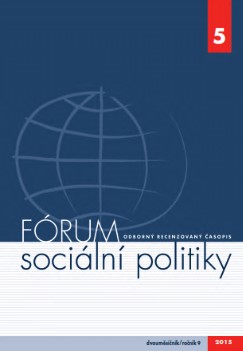
At the end of the summer holiday period (25 to 28 August 2015), Prague hosted almost three and a half thousand sociologists from Europe as well as other parts of the world on the occasion of the twelfth biannual conference of the European Sociological Association (ESA). The main theme of the conference "differences, inequalities and sociological imagination" urged participants to closely monitor socially important and topical issues.
More...
The aim of the article is to identify the determinants of the development of startups perceived by representatives of generation Z in Poland. It is important to obtain an answer to the research question: what determines the development of startups to the greatest extent? The goal was achieved through a review of the literature, conducting a survey on a group of 500 members of generation Z, i.e. people entering the labour market, who are most prone to setting up startups, and analysing the results obtained.Based on the analysis of the literature on the subject, an attempt was made to identify the determinants of startup success. Based on this, a questionnaire was created, which was used in to gather data. The survey was conducted in May–December 2021 via the Internet. The respondents indicated that new technologies and the method of financing determine the development of a startup to the greatest extent. It is also important that the respondents noticed that competences are the key to being able to develop a startup, perceiving intellectual capital as an important determinant of its success. In addition, they identified a large impact of cooperation with corporations on the dynamic development of a startup.The startup is part of the 4.0 era by providing an innovative product to the market. Nevertheless, its success depends on the competencies of the organisation, determining the development of a scalable business model. Startups develop in a dynamically changing environment, so they must be able to effectively use emerging opportunities and avoid threats.
More...